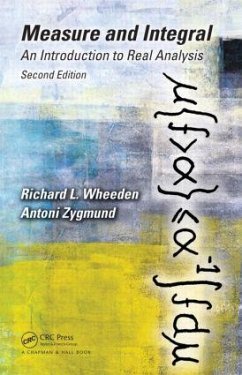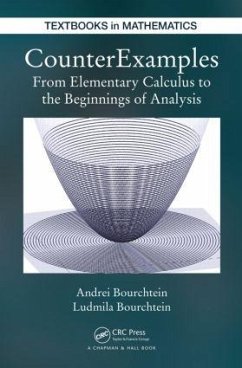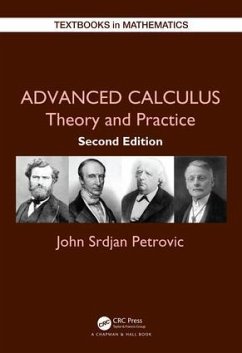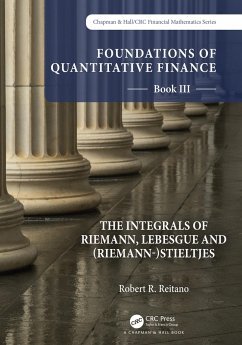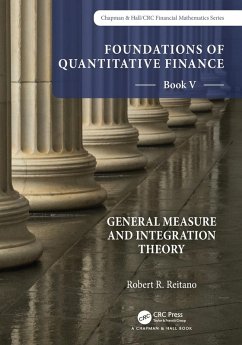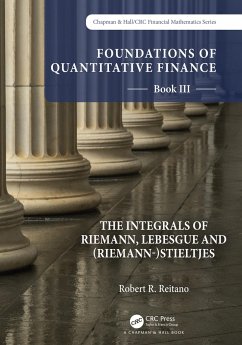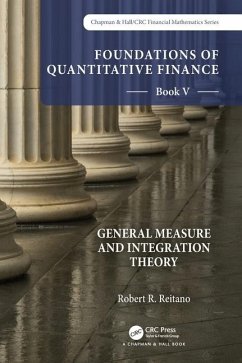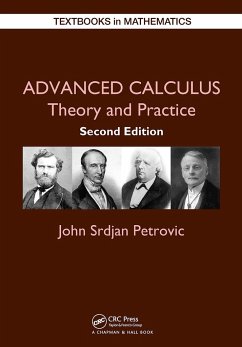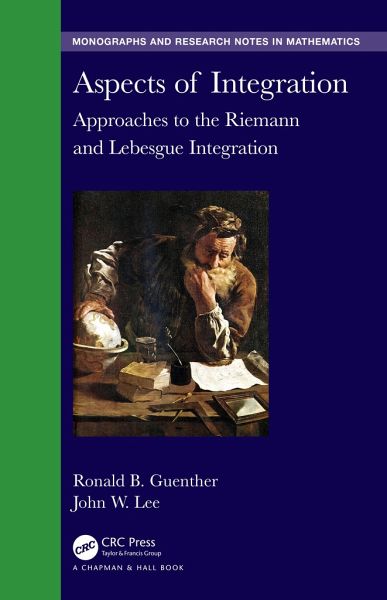
Aspects of Integration
Novel Approaches to the Riemann and Lebesgue Integrals
Versandkostenfrei!
Versandfertig in 6-10 Tagen
176,99 €
inkl. MwSt.
Weitere Ausgaben:

PAYBACK Punkte
88 °P sammeln!
Aspects of Integration: Novel Approaches to the Riemann and Lebesgue Integrals is comprised of two parts. The first part is devoted to the Riemann integral, and provides not only a novel approach, but also includes several neat examples that are rarely found in other treatments of Riemann integration. Historical remarks trace the development of integration from the method of exhaustion of Eudoxus and Archimedes, used to evaluate areas related to circles and parabolas, to Riemann's careful definition of the definite integral, which is a powerful expansion of the method of exhaustion and makes i...
Aspects of Integration: Novel Approaches to the Riemann and Lebesgue Integrals is comprised of two parts. The first part is devoted to the Riemann integral, and provides not only a novel approach, but also includes several neat examples that are rarely found in other treatments of Riemann integration. Historical remarks trace the development of integration from the method of exhaustion of Eudoxus and Archimedes, used to evaluate areas related to circles and parabolas, to Riemann's careful definition of the definite integral, which is a powerful expansion of the method of exhaustion and makes it clear what a definite integral really is.
The second part follows the approach of Riesz and Nagy in which the Lebesgue integral is developed without the need for any measure theory. Our approach is novel in part because it uses integrals of continuous functions rather than integrals of step functions as its starting point. This is natural because Riemann integrals of continuous functions occur much more frequently than do integrals of step functions as a precursor to Lebesgue integration. In addition, the approach used here is natural because step functions play no role in the novel development of the Riemann integral in the first part of the book. Our presentation of the Riesz-Nagy approach is significantly more accessible, especially in its discussion of the two key lemmas upon which the approach critically depends, and is more concise than other treatments.
Features
Presents novel approaches designed to be more accessible than classical presentationsA welcome alternative approach to the Riemann integral in undergraduate analysis coursesMakes the Lebesgue integral accessible to upper division undergraduate studentsHow completion of the Riemann integral leads to the Lebesgue integralContains a number of historical insightsGives added perspective to researchers and postgraduates interested in the Riemann and Lebesgue integrals
The second part follows the approach of Riesz and Nagy in which the Lebesgue integral is developed without the need for any measure theory. Our approach is novel in part because it uses integrals of continuous functions rather than integrals of step functions as its starting point. This is natural because Riemann integrals of continuous functions occur much more frequently than do integrals of step functions as a precursor to Lebesgue integration. In addition, the approach used here is natural because step functions play no role in the novel development of the Riemann integral in the first part of the book. Our presentation of the Riesz-Nagy approach is significantly more accessible, especially in its discussion of the two key lemmas upon which the approach critically depends, and is more concise than other treatments.
Features
Presents novel approaches designed to be more accessible than classical presentationsA welcome alternative approach to the Riemann integral in undergraduate analysis coursesMakes the Lebesgue integral accessible to upper division undergraduate studentsHow completion of the Riemann integral leads to the Lebesgue integralContains a number of historical insightsGives added perspective to researchers and postgraduates interested in the Riemann and Lebesgue integrals




